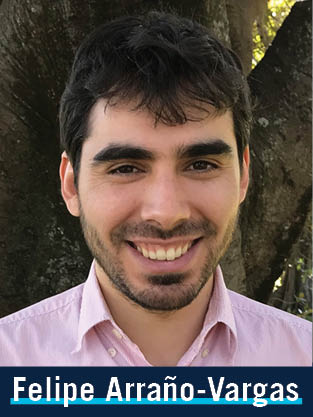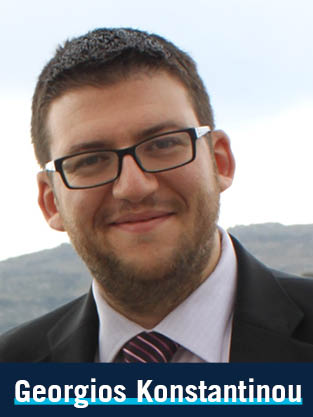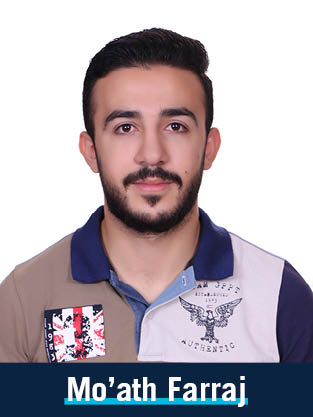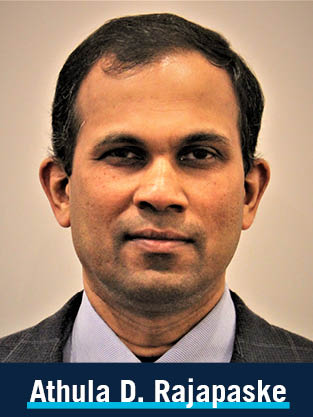User Spotlight Series 2.0, Episode 2
Grid-Supporting Battery Energy Storage System - Modelling and Simulation in RTDS: An Australian Case Study
Abstract: The combination of increasing penetration of inverter-based resources (IBRs) along with decreasing system strength, amplifies stability issues of IBRs and the power system to which they connect. Under these conditions, traditional, resonance and converter-driven stability are found to be affected. The Australian National Electricity Market (NEM) is not the exemption, and it has experienced operational manifestations of low system strength conditions.
The remote location of several areas of the NEM, the lack of nearby synchronous generators and the lack of strong transmission connections are some of the factors that, when combined, result in a very weak area. Grid-supporting battery energy storage systems (BESSs) are among the prominent solutions to strengthen an area while supporting the increased growth of renewable generation. Real-time simulations and hardware-in-the-loop testing enhances the approach.
This presentation will cover:
- The main technical challenges faced in the West Murray Zone, a weak area of the NEM, due to the high penetration of IBRs and the lack of system strength support.
- The proposed mitigation measures including a grid-supporting BESS with virtual synchronous machine emulation.
- Analysis and findings of the proposed solution based on the RTDS simulator.
- Real-time controller hardware-in-the-loop co-simulation to test and validate the proposed solution under several scenarios.
Presenters:
 Felipe Arraño-Vargas is a PhD candidate at the School of Electrical Engineering and Telecommunications at the University of New South Wales (UNSW) in Sydney, Australia. His research interests include the development, modeling and simulation of inverter-based resources and synthetic grids in real-time digital simulators.
Felipe Arraño-Vargas is a PhD candidate at the School of Electrical Engineering and Telecommunications at the University of New South Wales (UNSW) in Sydney, Australia. His research interests include the development, modeling and simulation of inverter-based resources and synthetic grids in real-time digital simulators.
 Georgios Konstantinou is a Senior Lecturer in Energy Systems with the School of Electrical Engineering and Telecommunications at the University of New South Wales (UNSW) in Sydney, Australia. He is also the research and teaching coordinator at the university’s real-time digital simulation laboratory (RTS@UNSW). Georgios research covers the areas of power electronics and grid integration of renewable energy, energy storage and HVDC systems.
Georgios Konstantinou is a Senior Lecturer in Energy Systems with the School of Electrical Engineering and Telecommunications at the University of New South Wales (UNSW) in Sydney, Australia. He is also the research and teaching coordinator at the university’s real-time digital simulation laboratory (RTS@UNSW). Georgios research covers the areas of power electronics and grid integration of renewable energy, energy storage and HVDC systems.
Development of a Microgrid Controller for a Remote Off-Grid Power System in Northern Canada and Its Evaluation Using Hardware-in-the-Loop Simulations
Abstract: Solar photovoltaic (PV) generation combined with energy storage is emerging as a feasible renewable retrofit to the solely diesel-based remote off-grid power systems in northern Canada to reduce emissions and other environmental risks associated with diesel transportation. The integration of inverter-interfaced Distributed Energy Resources (DERs) along with conventional generation resources significantly increases the system complexity requiring complex control algorithms. Advanced energy management algorithms are needed to maximize the economic and environmental benefits of such systems. Therefore, proper testing of microgrid control strategies before field deployment is becoming an important need.
This work develops a hierarchical microgrid controller consisting of an energy management system deploying a model predictive control framework and a power management system. The functionality of the proposed microgrid controller is evaluated on a controller hardware in the loop (CHIL) simulation platform. The structure of the testbed includes a real-time digital simulator (RTDS®), SEL RTAC-3350 digital controller, and a desktop computer running the energy management system implemented in MATLAB®. The development and coordination of the hierarchical control levels, and the integration of the IEC-61850 based communication for exchange of measurements, status signals and control commands will be discussed.
Presenters:

Mo’ath Farraj received the B.Sc. (Eng.) degree in Electrical Engineering from Philadelphia University, Jordan, in 2019. He recently finished his MSc degree at the University of Manitoba, Manitoba, Canada and is currently working as a Consultant at Quanta Technology.
 Dr. Athula D. Rajapakse joined the University of Manitoba as an Assistant Professor in the Department of Electrical and Computer Engineering in 2004, and currently holds a rank of Professor. He has a diverse background in Power and Energy Systems related areas. His current research activities mainly focus on Power System Protection and Renewable Energy Integration. Prof. Rajapakse is a Senior Member of IEEE, a Registered Professional Engineer in the province of Manitoba, Canada, and a Fellow of Engineers Canada. He is an active member of a number of CIGRE and IEEE working groups.
Dr. Athula D. Rajapakse joined the University of Manitoba as an Assistant Professor in the Department of Electrical and Computer Engineering in 2004, and currently holds a rank of Professor. He has a diverse background in Power and Energy Systems related areas. His current research activities mainly focus on Power System Protection and Renewable Energy Integration. Prof. Rajapakse is a Senior Member of IEEE, a Registered Professional Engineer in the province of Manitoba, Canada, and a Fellow of Engineers Canada. He is an active member of a number of CIGRE and IEEE working groups.
Watch the recorded webinar here:
